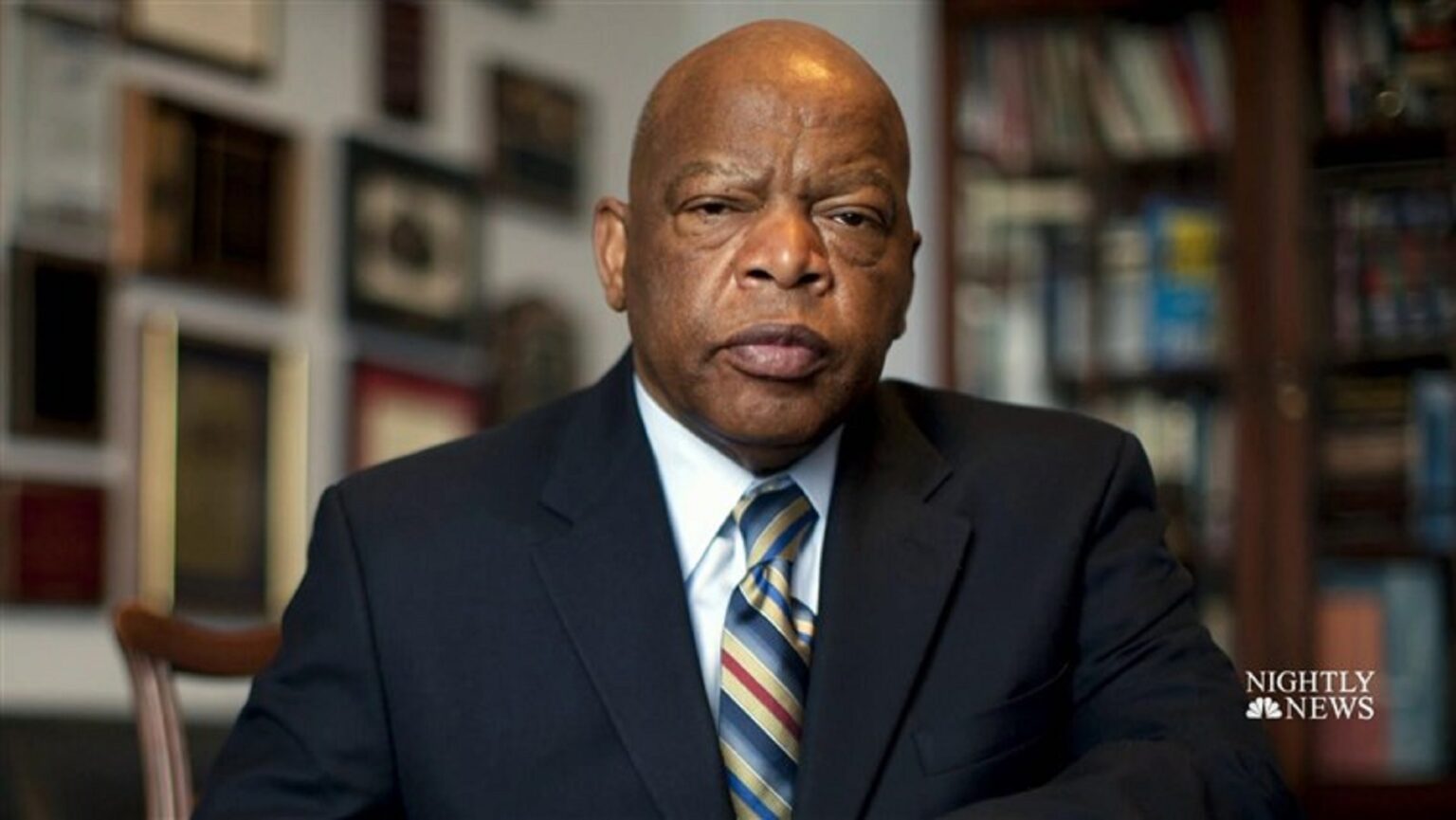
John Lewis the civil rights leader: All the badass things he accomplished
John Lewis is one of the original civil rights leaders to emerge out of the 60s. Over the course of his decades-long career, he’s racked up a list of accomplishments so great that if you’ve even done half of those things, then you can consider yourself having lived a deeply fulfilling life. It’s a true tragedy that Lewis died over the weekend because it’s one less powerful voice speaking out against the injustices of the world.
And if you’re looking to learn more about civil rights leader and Congressman, John Lewis, then this is the article for you. Lewis was, simply put, a certified badass. The list of his accomplishments is long and absolutely amazing. Here’s everything you need to learn about Lewis’s astonishing career.
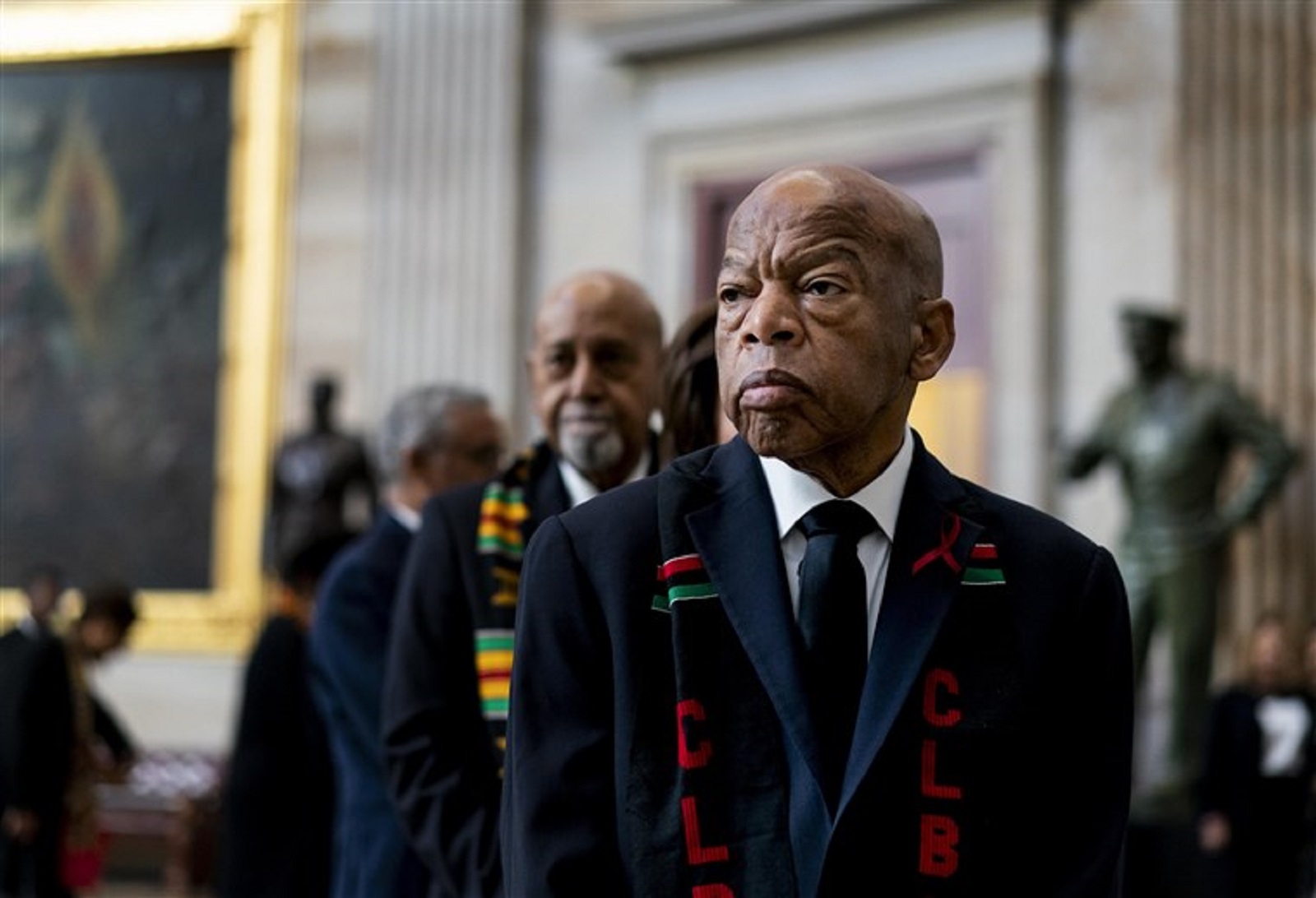
The 60s
Over the course of the 60s, John Lewis was heavily involved with the Civil Rights movement. Over the course of the decade, he organized sit-in demonstrations in Nashville, volunteered as a “Freedom Rider” (who challenged bus and rail segregation laws), and worked as the Chairman of the Student Nonviolent Coordinating Committee.
Lewis’ best-known achievement during this era, however, is being of the “Big Six”. This group of civil rights leaders organized the 1963 March on Washington. During this March, Lewis was a keynote speaker. Though, of course, the best-known speech of the day is Martin Luther King Jr’s “I Have a Dream”.

Lewis’ work continued throughout the 60s. He helped organize two marches from Selma to Montgomery. The first one would have 600 demonstrators and be brutally attacked by police, later being known as “Bloody Sunday”. The second one saw an original crowd of 3,000 demonstrators grow to 25,000 under the protection of federal troops.
Lewis also co-founded the Southern Coordinating Committee to End the War in Vietnam. He then would move to New York City to become the associate director of the Field Foundation, which focused on improving the lives of those stuck in poverty along with racial equality.
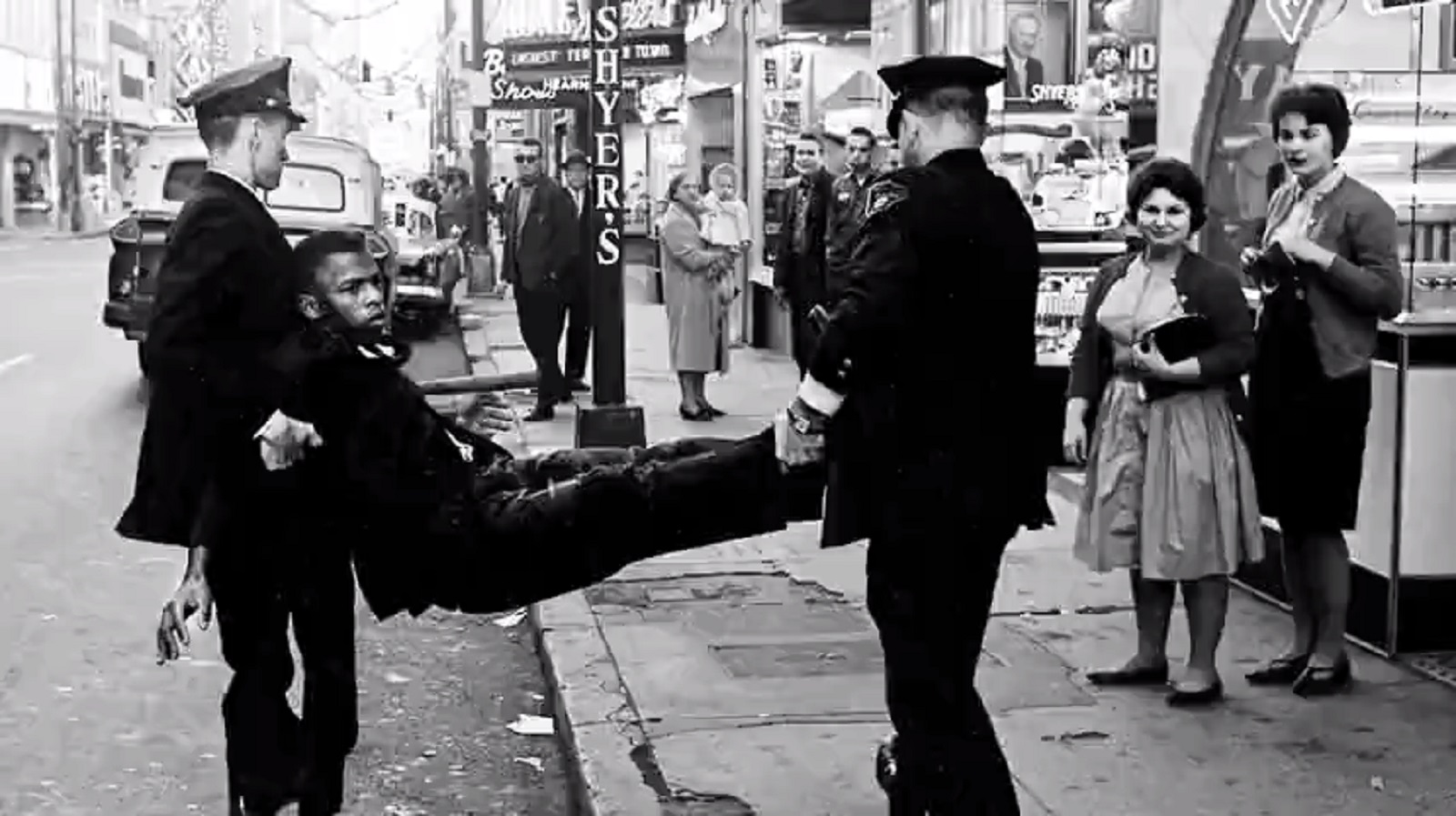
The 70s
From 1970-77, Lewis was the director of the Voter Education Project. This project was an offshoot of the Southern Regional Council’s Community Organization Project, which Lewis oversaw before moving to the VEP. The project, which from 1962-1992, funded voter education, registration, and research efforts in the South, especially in rural areas.
In 1977, President Jimmy Carter appointed John Lewis as the Associate Director of ACTION, which was a federal volunteer agency. Lewis served that post until 1980.
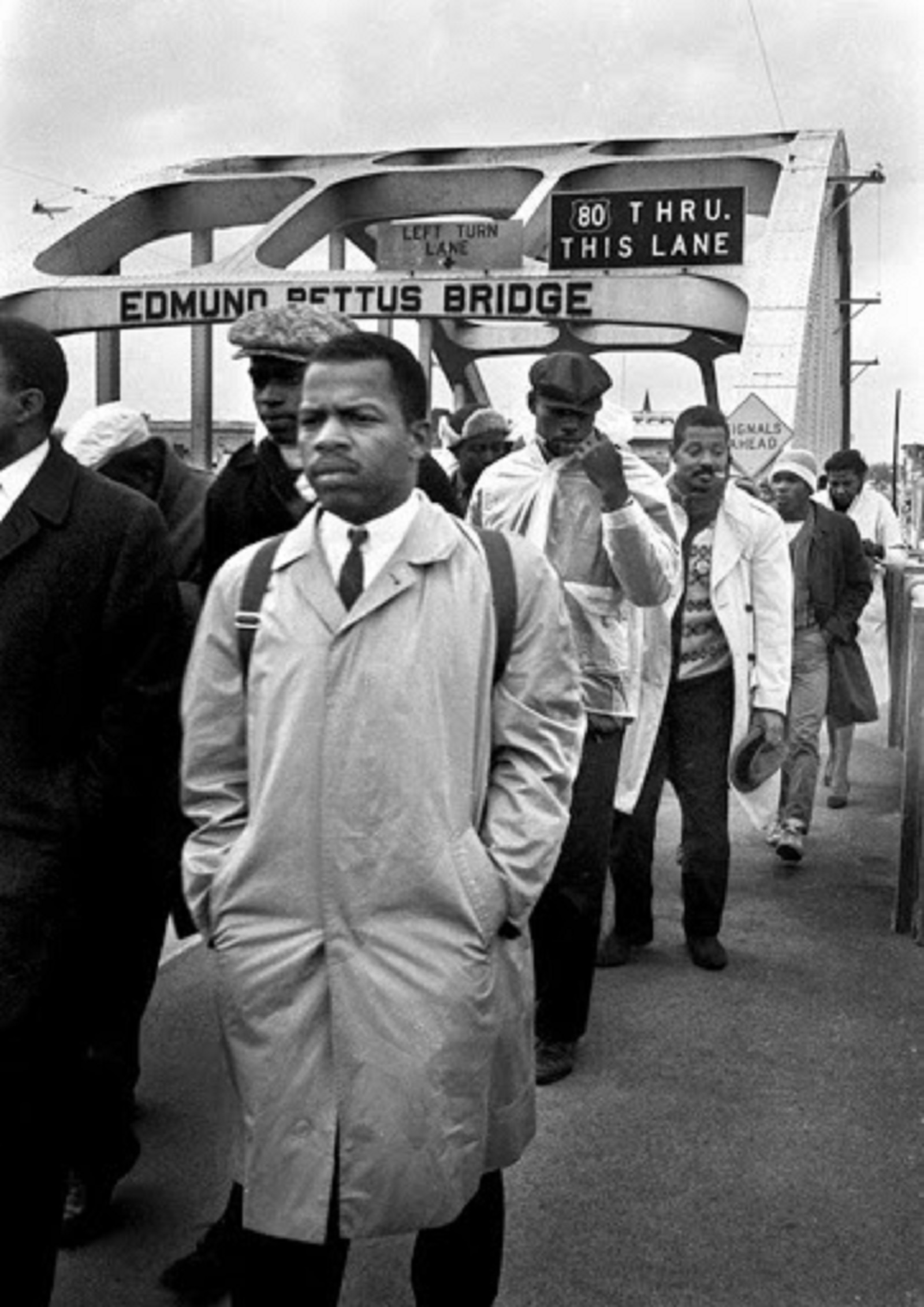
The 80s
The 80s is when Lewis’ political career began, starting in 1982 where he was elected as an Atlanta city council member. In 1987, Lewis was elected to the House of Representatives for Georgia’s 5th District. He would hold that post for the remainder of his life.
In 1988, Lewis published his memoir: Walking with the Wind: A Memoir of the Movement.
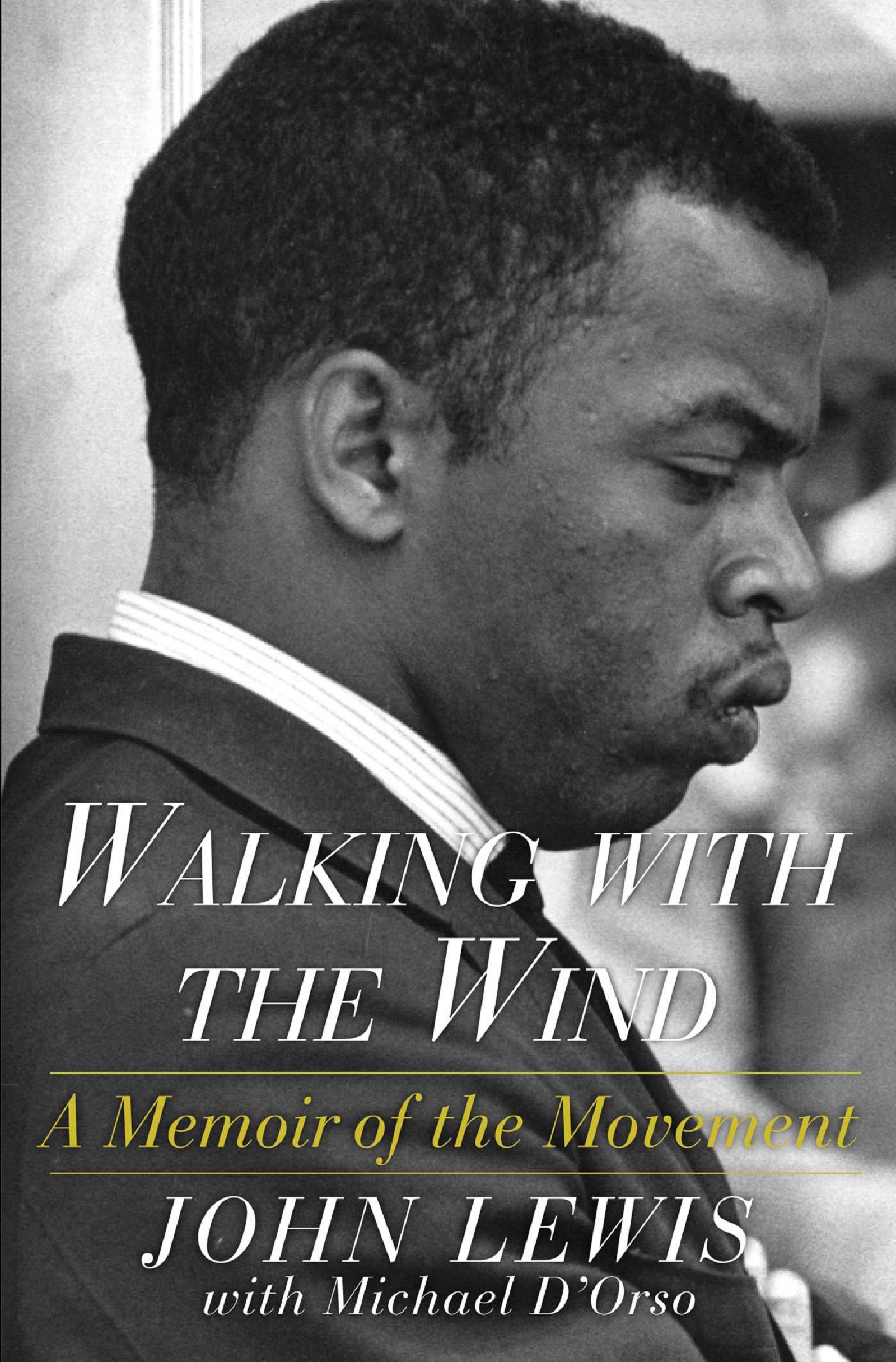
Up to the Present Day
The remaining decades of Lewis’ life saw him defend and fight against the injustices that he saw within the world. In 2009, he was arrested outside of the Embassy of Sudan, where he was protesting against the obstruction of aid to refugees in Darfur. Several years earlier, the John R. Lewis Monument was unveiled in Selma, Alabama to commemorate the events of Bloody Sunday.
President Barack Obama would award Lewis with the Presidential Medal of Freedom, which is one of the highest awards given to a civilian in the United States. Recipients of the medal are recognized due to “an especially meritorious contribution to the security or national interests of the United States, world peace, cultural or other significant public or private endeavors”
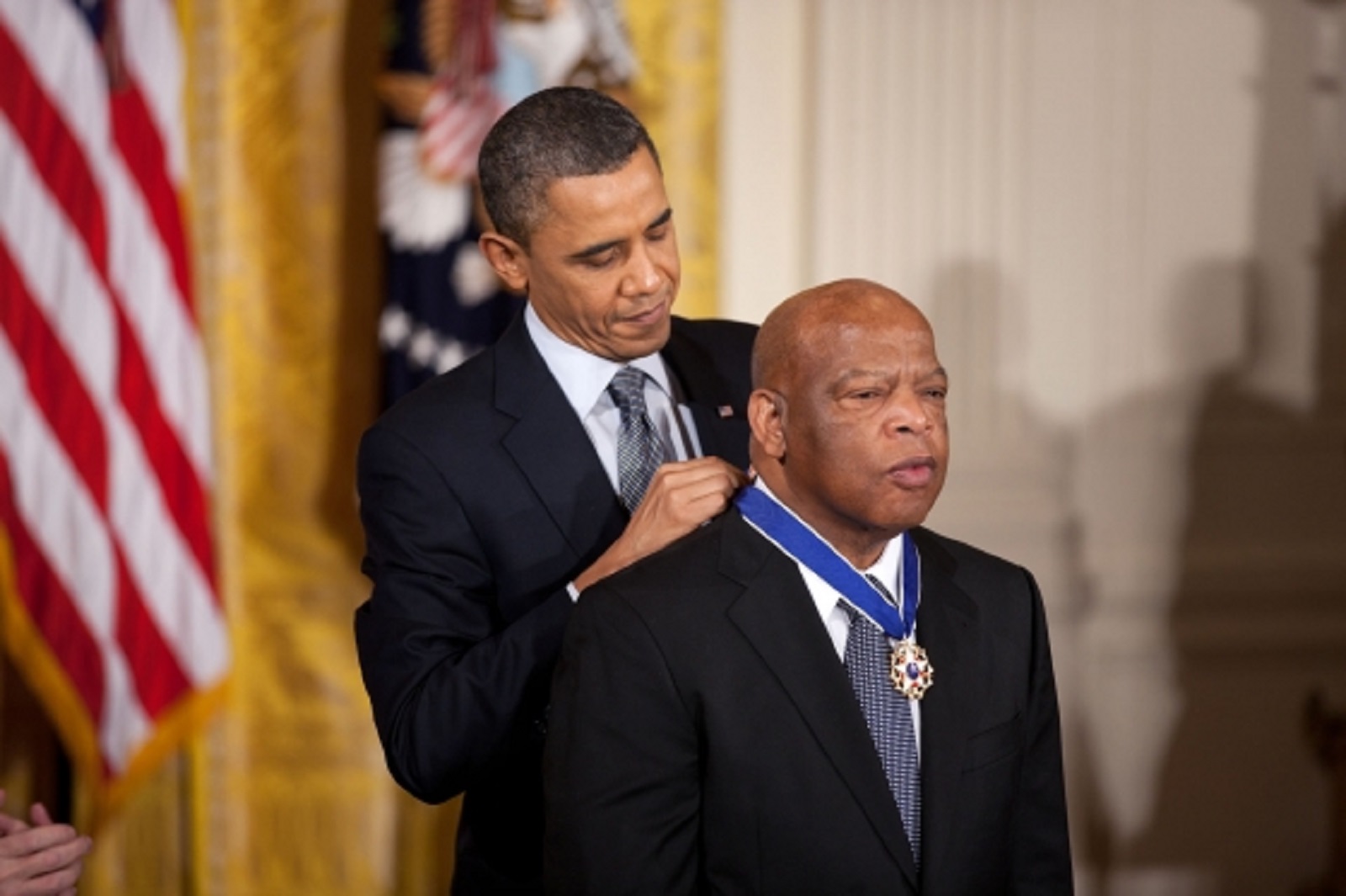
From 2013 to 2016, Lewis helped co-write the graphic novel trilogy March with Andrew Aydin co-writing and Nate Powell illustrating. This series is about the Civil Rights Movement, drawn in black and white, and shown through Lewis’ perspective of that time.
Lewis would lead a sit-in on the House floor in 2016, following the deadly mass shooting at Orlando’s Pulse nightclub, to protest the inaction for stricter gun control legislation and for a vote to prevent those on the terrorist watch list from purchasing guns.
Throughout Trump’s presidency, the pair has a contentious relationship. Lewis made it clear that he did not see Trump as a legitimate president and Trump just hated Lewis. This would continue until Lewis’ death from stage 4 pancreatic cancer on July 17, 2020.



